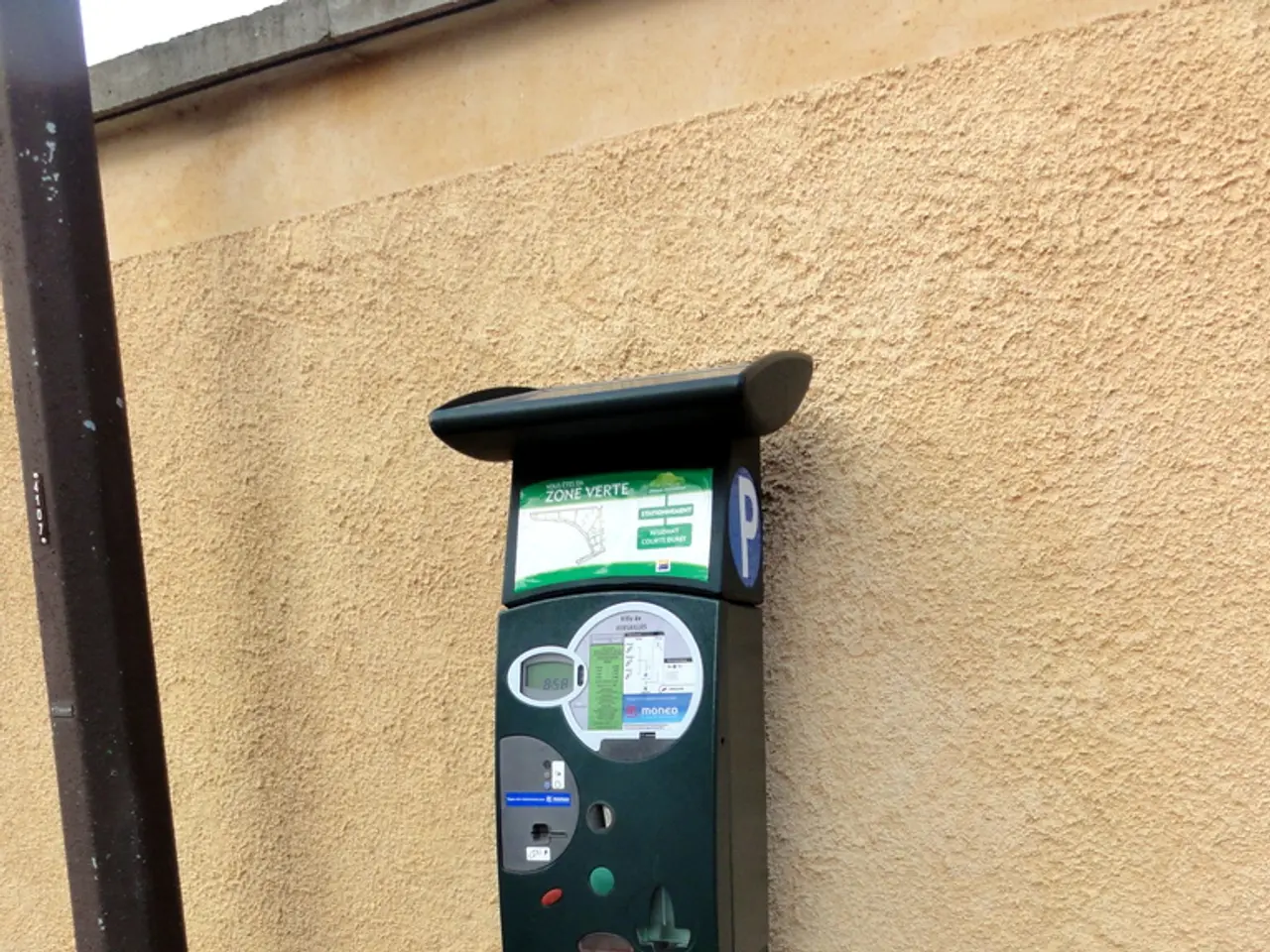Elderly Resident of Zhem Deceived by Role-Playing Bank Staff Imposter
Germany Warns Public of Bank Card Scams: Schwelm Incident Highlights Importance of Vigilance
On August 4, 2025, an 87-year-old man from Schwelm, Germany, fell victim to a bank card scam. The incident serves as a stark reminder of the importance of recognising and avoiding such fraudulent activities.
At around 10 am, the man received a call from an individual claiming to be a bank's security department employee. The caller alleged there were security issues and unusual account activities on the man's account. Believing the call to be genuine, the man handed over his EC card and login details to a man who later withdrew a low four-digit amount from an ATM.
The man who collected the EC card has been described as slim, approximately 25 years old, and speaking broken German. He was dressed in dark clothing and stood between 170 and 175 cm tall. The man had brown skin and a goatee. However, no further details about the suspect's identity have been released by the police.
The Criminal Police have initiated investigations into the scam, and they have warned the public to be cautious of such tactics. Similar calls have been reported, and the police urge individuals to remain vigilant.
To identify and avoid bank card scams, it is crucial to recognise common scam tactics. Be alert to unsolicited calls, messages, or emails asking for your card details or PIN, as scammers often impersonate banks or official entities. Watch for unexpected transactions or requests for money, which may include impersonation or identity theft, common in Germany scams. Suspicious requests to transfer money or provide personal details urgently or under pressure are typical red flags. Monitor your bank statements and transaction alerts carefully for unusual activity.
To avoid falling victim to such scams, never share your card number, CVV, PIN, or one-time passwords (OTPs) with anyone, especially if the request comes through phone calls or texts. Use two-factor authentication and strong, unique passwords for your online banking. Enable transaction alerts via SMS or email to track card activity immediately. Avoid clicking on links or downloading attachments from unknown or unsolicited communications. Contact your bank directly using verified contact information if you suspect fraud or receive suspicious requests. Regularly update your devices and banking apps to protect against vulnerabilities.
Scams are highly prevalent in Germany, with over half the adult population encountering scam attempts and significant financial losses reported, especially among older generations. Being vigilant and informed about scam tactics is essential to protect your financial security.
The police are seeking witnesses to the incident in Schwelm and urge anyone with information to come forward. If you have been a victim of a bank card scam or suspect fraudulent activity, contact your local police station or financial institution immediately.
- In light of the bank card scam incident in Schwelm, Germany, it's crucial for public awareness to extend beyond general news to topics like health-and-wellness, mental-health, and even science, as the emotional and financial repercussions of such scams can significantly impact an individual's well-being.
- The widespread prevalence of bank card scams in Germany, as highlighted in the Schwelm case, emphasizes the need for increased education on mental-health issues related to financial losses, as scam victims may experience stress, anxiety, and even depression.
- As the criminal justice system seeks to combat bank card scams, it is equally essential for the science and health-and-wellness communities to collaborate in researching ways to prevent, detect, and address the psychological effects of such fraudulent activities on individuals and society.




